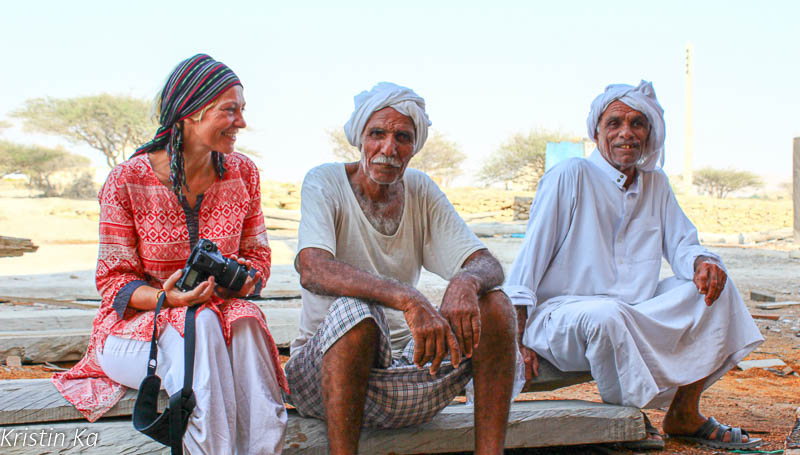Adapting and showing respect: the basis of the journey!
It’s not always easy to adapt to codes of good conduct or to comply with etiquette when you come from an uncomplicated and fairly tolerant society. However, it is necessary to integrate them quickly and act accordingly to avoid problems. What seems trivial, ridiculous or unimportant to us has a completely different meaning in other countries.
This modest effort will allow you to have an enriching experience and good, friendly and warm exchanges with the inhabitants.
These few rules of good conduct are the main ones. There are many others that vary from country to country.
Saying hello and goodbye
- Pointing fingers at people is frowned upon, even aggressive. Use the closed fist with thumb out to point to the person or object.
- The handshake is not a universal use. When in doubt, wait until the person you wish to greet holds out their hand to you. Otherwise, a smile, a tilt of the chest, a small hand gesture or a nod will suffice.
- A woman’s hand is not shaken everywhere, especially if you are a man. Be careful!
- When greeting a stranger, keep a respectful distance. No hugs, kisses like 2, 3 or 4 times! It is sometimes confusing because some people (especially younger people) have very western, very modern attitudes. It seems easy to greet them “à la française” but you risk creating a real unease.
- This advice is even more true if you meet this person while they are with their family or close friends. This familiarity could make him/her very uncomfortable and can be considered very vulgar. A nod will suffice!
- Don’t touch children’s heads in Asia, like, affectionately tousle their hair. This is the seat of the soul so hands off!
Let’s eat! Eating like a local
- In North Africa, the Middle East and other Muslim countries, always use the right hand. The left hand is considered impure.
- Pay extra attention when you are at the table. Use only your right hand to grasp your food. Outside the canteen it is the same. When pointing at something or someone, always do so with your right hand!
- With the permission to eat with THE hand and not HANDS, you are back to childhood. So take advantage of this delicious regression but don’t overdo it.
- Don’t hold food the Tyrex way, i.e. with your full hand, use only thumb-major-index and everything will be fine.
- In many Asian countries, at the table, we make a lot of noise! Chew, do yap-yap-yap-yap, slurp-slurp-slurp, slap your jaws, you can even burp without looking like a lout. Contrary to Western savoir-vivre, eating noisily expresses joy and respect for your guests.
- In North Africa, finishing your plate means that you want to be served again. Leaving food on the plate, on the other hand, announces that you are full.
- It is quite rare that you are given a knife to eat with. Most of the time it is useless. Food does not need to be cut: either it is already cut or it is easily grasped with 3 fingers.
- No white tablecloths, cutlery or plates. Don’t get formalized. In many countries, people eat only with their fingers, picking from the main dish. You also drop everything on the table and under the table. That’s the way it is!
- The etiquette outside our countries is quite different. If you are invited to eat, don’t worry if the other guests start the meal without waiting for you and leave the table “cavalierly” when they have finished.
- All the dishes often arrive on the table at the same time and the fact that it is covered with food is a sign of opulence, of welcome. Don’t wait for someone to serve you or for the lady of the house to fill your plate, help yourself!
- But be careful not to be rude and take the best or the biggest chunks.
- In Africa, it happens that the person who invites you may not sit at the table. He stays behind and makes sure that everything goes well for you. He doesn’t snub you, he honours you.
Watch your step and your feet!
Yes, here too you have to be careful where you put them, and not just a little…
- You should always take off your shoes when entering a flat, hotel, hostel, house and of course any place of worship.
- Feet on the table: in the West, it’s already borderline, so imagine a little there! Even in socks, even bare feet, even clean: no feet on the table, even low, nor on the sofa, chairs, etc.
- It is advisable to take off your shoes in Buddhist temples but be careful not to point your feet at Buddha. This is an outrage!
- When sitting down, do not cross your legs high. Otherwise your feet will be seen . This can be insulting to your interlocutor. In this case, it can also be a too relaxed attitude which can pass for a lack of respect.
Adapting to censorship: abroad you can’t say everything
You are far away from your country and culture. Some adaptation is necessary. In your country, you may love to comment on the facts of society. Your culture allows us to ape the president and his ministers at will, to debate this or that religion. You have the right to discuss, to express our opinions freely.
- This is not the case everywhere. This attitude can be felt as provocative, disrespectful or hurtful by the natives. So don’t criticise the government, or the high religious authorities, or… nothing at all. Keep debates for other travellers or behind closed doors.
- If you are a woman and you cross swords with a local, the battle may be a dead end even if you are right. Gender parity is not universal. Losing face in front of a woman is the height of shame in some parts of the world. Look for a male mediator to advocate on your behalf. Let him speak and above all, don’t intervene and keep quiet.
Acting elegantly is better than acting like a lout
Partying? of course! Get drunk? why not if you feel like it. But be careful how you behave once you are totally uninhibited by alcohol.
- In a country like Laos or Thailand, the inhabitants observe restraint and discretion, cover their shoulders and legs and are very concerned about their personal hygiene.
- It’s a pity (and shame too) to see these completely drunk visitors making a spectacle of themselves. Chanting in the streets, screaming, shouting, laughing loudly. It’s also really pitiful to see them scruffy (bare chest, short skirt…). These visitors disregard all discretion and consideration for the locals.
- Be polite and civil. These behaviours can have a profound impact on the image that citizens will have of your compatriots.
Joking yes, mocking no
- Silence your loud side! In many Asian countries, you don’t shout, you don’t raise your voice in public.
- Nor do you make fun of someone in front of everyone. It would be seen as a terrible affront (losing face, all that stuff) that could trigger a vendetta on the 25 future generations.
A dress code, that’s respected
It would be tedious to list them, but many countries have a limited tolerance of dress code.
- Find out before you leave and adapt your outfit to the customs of the country you are visiting. In the West, seeing a woman with bare arms or in a short skirt, a man in shorts and a tank top does not shock anyone. But this innocent outfit might shake up Malaysians, Laotians, Egyptians, etc.
- The dress code does not only apply to women. Men are also invited to leave the short shorts and Rambo tank top at the bottom of the bag when they wander around Tehran or visit temples.
- Taking care of your outfit is also a sign of respect. In some very poor countries, people still dress very neatly. It is confusing for them to see Westerners wandering around in ragged-grunge-wearing-tired fashion, with their hair in battle and dirty or old clothes. You don’t need to carry a James Bond suit in your backpack: clean, fit trousers and a t-shirt will do the job.
- Don’t tempt the devil. Even in countries overrun with tourists, choose light trousers over shorts on buses, markets and streets and avoid revealing neckline tops and showing belly button.
On the beach: Burqa, Abaya, djellaba… and tanga
You are almost ready to explore the world…
It seems obvious … and yet! Small non-exhaustive list of the stupid things of what not to do away from home …

